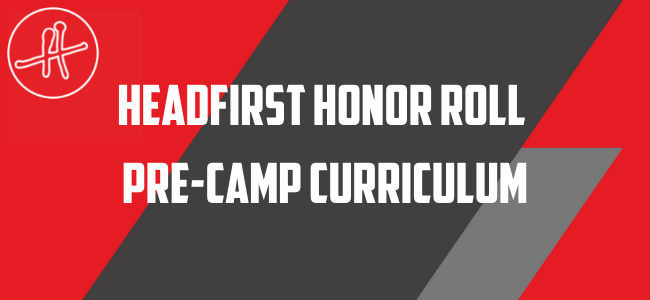


May 25, 2022
A key piece to being efficient in your recruiting efforts is identifying your targeted list of schools, so that you can make sure that you’re maximizing your exposure to these programs. When building out a college list, there are a few foundations that we look to build on:
When we speak about holistic college fit, we mean the overall fit of a school across many different dimensions: academics, athletics, setting, geography, school size, area of study or academic focus or strength, distance from home, social life, and more — and also the intangibles that go into creating a great college experience. The exact combination of these qualities that will be the right fit for you and your college experience, and also the relative value and importance that you assign to each of them is going to be completely different for each individual student-athlete. Not only will ideal school size be different for two student-athletes – they’re also each likely to assign a different weight or importance to where school size falls in their hierarchy of qualities that they’re considering. For one student-athlete, it may be the single most important factor, while for another it may not be all that important, provided other pieces of the puzzle (other school qualities) fit.
Finding this holistic fit, and then gaining admission access through your unique combination of hard work in the classroom and on the field, is the key – the single most important – “win” in the recruiting process. Ultimately, it is this holistic view of the school fit that will determine your happiness and success at the next level – and using baseball as a way to help you find this fit and then access it through admissions is the most important single outcome of the process of high-academic recruiting. In fact – if we were to distill down how we define “high-academic recruiting”, it would be just that.
We believe that holistic college fit is important, because ultimately it is this that will best set you up for success during and after your college experience. With the impact that your college decision has on long-term connections, networks, and life after college, it’s crucial that this is first and foremost an academic fit decision. As a baseball player, you’ll go through important parts of your college search with a jersey on, and with a glove on your hand instead of a textbook in it – but that does not and cannot change that this process first has to weight academics and the related pieces of holistic fit as the primary objective.
When we talk to student-athletes about building out their “school list”, most of them (very naturally) start by generating a list of school names. But when it comes to finding the right college fit, we believe that the qualities of the school matter much more to your four-year experience than the name on the plaque on the front gate. So rather than school names, we start the “college list” with qualities, rather than names.
A few things that holistic fit is not: the top US News & World Reports-ranked school that you’ve visited or that has sent you an email, the most prestigious or biggest-name school on your list, the highest-ranked baseball program giving you recruiting attention or the school that you’ve dreamt about since you were 6 years old. While these are all powerfully appealing, none of them describe the qualities of a school that could make it a good fit for you.
To find the right fit, there are two large – and sometimes intimidating – buckets of information to gather: knowledge on the schools on your list, and knowledge of yourself. We’ll address the second first. An obvious piece of knowing how to weigh the different dimensions and variables of finding the right school fit is knowing what it is that you as a student-athlete value and find important in your college experience.
In the high-academic recruiting process, it can be easy to hone in and fixate on labels, whether you have your sights set on “Division I”, “Ivy League” or another – after all, the way that the NCAA has gathered together athletic departments in leagues and conferences can make it easy to lump together very different schools. If you pursue a specific label, regardless of what it is, there’s a good chance that you aren’t considering the holistic college fit that will set you up for your own personal best experience – both during and after your college years. One way to help yourself find this fit is to start with the blank canvas, that is, with a college search free from labels, but that starts from school qualities, and then engage with schools, campuses and these qualities directly and meaningfully.
To do this for yourself, every time you visit a campus and research a school, write down your initial thoughts and reactions to the different aspects of the school and campus. As you go, make sure that you’re reacting to and thinking and writing about the individual characteristics of the school – its size, its campus location, geography, class size, impression of the campus itself, areas of academic strength – rather than any label that it may carry (e.g.: “Division 1”, “Ivy League”, etc.). Some of the key questions to ask during your writing:
Add to this list by thinking through what’s important to you about your college experience and writing some questions that help you think about these qualities while you’re on campus.
A few “dos and don’ts” of building out your college list:
DOs:
DON’Ts:
Before you attend your Honor Roll Camp session, you can set yourself up for a good showcase by doing research on your potential college fits, and also putting thought into what your individual list of school qualities should look like.
Before camp, build out the list of qualities that you think will be important to you – and then test out some of your assumptions by touring a local college (either in-person if available or doing a virtual/online tour). Even if it’s not a school you’re interested in, but that has some of the qualities on your list, you can get a sense of what that may look like, and if it’s actually the right fit in-person, as well as on paper.
List of Qualities
A few areas of school qualities to consider (note – this is by no means an exhaustive list, just a few important areas to get your wheels turning):
ACADEMICS
GEOGRAPHY
SETTING
SIZE
ATHLETICS
SOCIAL LIFE
Research & Discovery
Prior to camp is a crucial time to do research – with an open mind – to learn more about the schools that are attending. As you do this research, start to align the different schools with how they fit into the qualities that you’re looking for – this will help you narrow down and target your list for pre-camp coach outreach (covered later in the pre-camp curriculum) and so that you can identify which schools you are going to prioritize connecting with while you’re at your showcase.
One important key to success while you’re on-site at camp is having an open mind, and an eye towards discovering schools and programs that you might not have known about, but that may offer the right fit for you. The list of schools at each Honor Roll session focuses on high-academic programs – but also offers a wide variety of experiences, with schools from all over the country, all across the ladder of college baseball, and with different academic strengths and focuses. Because of this, when you approach camp and coach engagement with an open mind, Honor Roll can be a great discovery platform for finding “lookalike” schools for the programs that you’re already interested in.
If you show up at camp knowing that you’re interested in 15-20 schools that are there, chances are very good that there are 10-15 more in attendance that have a lot in common with your target list of school qualities, but that you may not know about yet. Each interaction with a coach is an opportunity to learn more about a school that might be a good fit for you at the next level – if you keep an open mind and think about your list of school qualities, rather than a list of school names.
